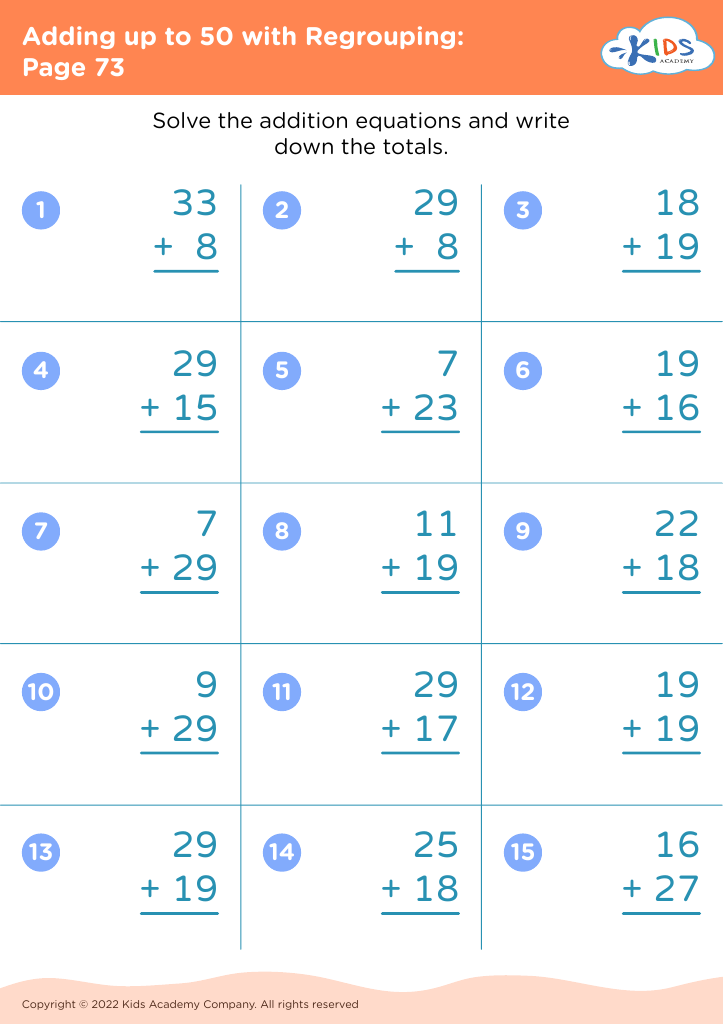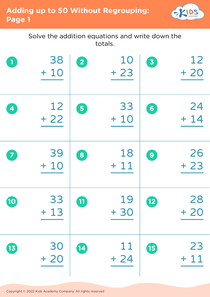Fine Motor Skills Adding up to 50 with Regrouping Worksheets for Ages 6-7
7 filtered results
-
From - To
Enhance your child's fine motor skills with our "Adding up to 50 with Regrouping Worksheets" for ages 6-7. These engaging activities provide excellent practice in hand-eye coordination while mastering essential math concepts. Each worksheet is designed to stimulate young minds, offering a perfect blend of challenge and fun. Children will enjoy coloring, drawing, and tracing numbers as they learn to add and regroup with confidence. Ideal for home or classroom use, these worksheets support both cognitive and motor skill development, making learning math exciting and effective. Foster your child's growth today with Kids Academy's thoughtfully crafted resources!
Fine motor skills – the precise coordination of small muscle movements in hands and fingers – are crucial for young children, especially those aged 6-7. At this stage, students begin to work on essential academic skills, including addition with regrouping, where fine motor skills play a significant role.
When children practice addition with regrouping (adding up to 50), they engage multiple forms of physical and cognitive activity: writing numbers precisely, handling manipulatives like blocks or counters, and visually tracking their work. Strong fine motor skills enable them to write numbers clearly and accurately, which enhances their general handwriting abilities and reduces frustration in longer written tasks.
Furthermore, these motor skills contribute to building strong hand-eye coordination and cognitive task engagement, which are interlinked with higher academic achievement and problem-solving abilities. Accurate calculation practice fosters mathematical understanding, instilling foundational skills necessary for future math concepts.
For teachers and parents, nurturing these skills involves activities such as coloring, crafting, and hands-on math games, blending learning with play. Support and encouragement in developing fine motor capabilities not merely aid academic success but also boost children's self-confidence, initiative, and overall engagement in learning environments. Prioritizing fine motor skill activities ensures holistic development, preparing children to handle more complex tasks competently in later years.


















